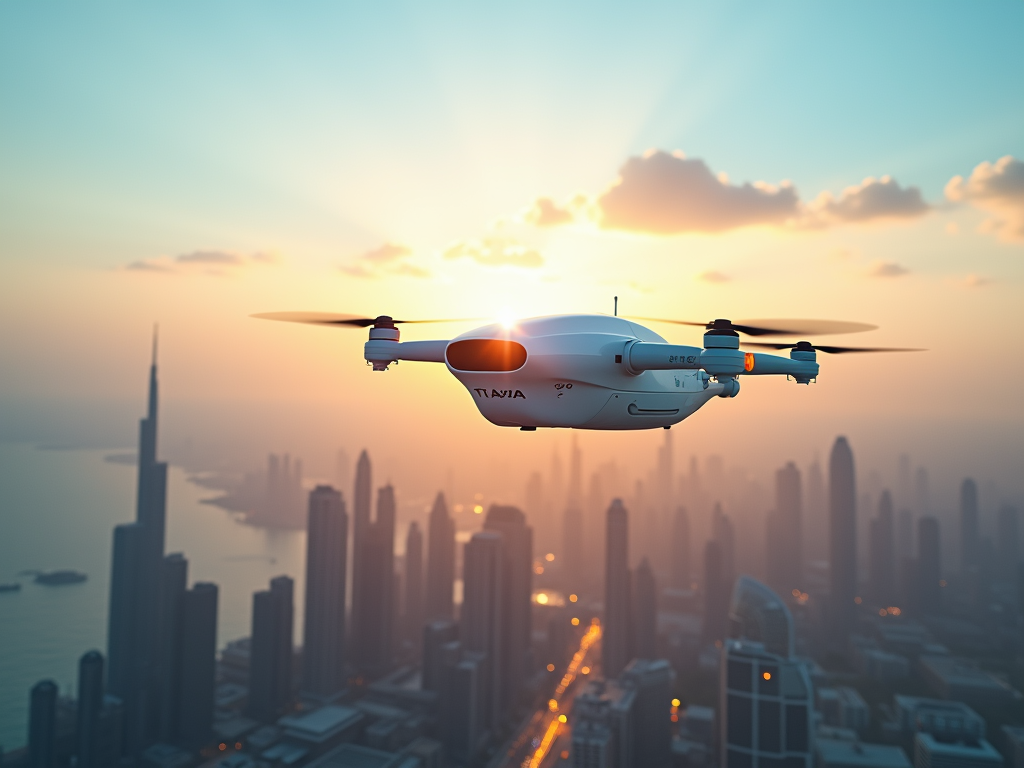Dubai, a city renowned for its futuristic skyline and robust economy, is rapidly emerging as a pivotal hub for the aerospace industry. With significant investments in infrastructure, ambitious governmental support, and an increasingly skilled workforce, the aerospace sector in Dubai offers lucrative opportunities for both local and international investors. This article will delve into key factors that make Dubai an attractive destination for aerospace investment and highlight emerging trends and initiatives within the sector.
The Growth of Dubai’s Aerospace Sector

Over the past decades, Dubai has invested billions in building an aerospace ecosystem that includes manufacturing, research and development, and maintenance, repair, and overhaul (MRO) services. The Dubai Aerospace Enterprise (DAE) plays a fundamental role in propelling the sector, demonstrating the emirate’s commitment to establishing itself as a global aerospace leader. The growth of the sector can be observed through several key initiatives:
- Dubai Airshow: A biennial event that acts as a catalyst for business networking and technological advancements.
- Aerospace and Defense Manufacturing Strategy: This strategy aims to increase the contribution of this sector to the emirate’s economy.
- Partnerships with Global Brands: Collaborations with companies like Boeing and Airbus create avenues for skill development and innovation.
This strategic emphasis on the aerospace sector is also influenced by Dubai’s geographic advantages, such as its proximity to key markets in Europe, Asia, and Africa, making air transport routes more competitive and profitable for investors.
Investment Incentives and Government Support

The UAE government provides a conducive environment for foreign direct investment (FDI) within the aerospace sector. Tax exemptions, 100% foreign ownership, and simplified regulatory processes considerably enhance the attractiveness of investing in Dubai. Key incentives include:
- Free Zones: Areas like Dubai Silicon Oasis offer tailored facilities and benefits for aerospace companies.
- Funding Programs: Access to financial assistance from various governmental agencies to support startups and expansions.
- Research Collaboration: Initiatives that promote partnerships between universities and aerospace companies foster innovation.
This unparalleled governmental backing not only attracts extensive capital flows but also reassures investors regarding the sustainability and viability of aerospace ventures in Dubai.
Emerging Trends in the Aerospace Industry
The aerospace sector in Dubai is exhibiting several emerging trends that investors should be aware of. These include:
- Urban Air Mobility (UAM): The increasing interest in air taxis and drone technologies aligns with Dubai’s vision of becoming a smart city.
- Green Aviation: Investments in sustainable technologies and practices to minimize the environmental impact of aviation.
- Space Exploration: Initiatives like the UAE’s Mars Mission enhance the research and satellite sectors, creating niche investment opportunities.
Such trends not only showcase Dubai’s innovative spirit but also promise growth avenues, making the sector more appealing for investment, research, and development.
Challenges Facing Investments
While the prospects are promising, potential investors should also consider the challenges in the aerospace sector in Dubai. Some key challenges include:
- Market Competition: Intense competition from established aerospace hubs in North America and Europe can pose barriers to entry.
- Regulatory Hurdles: Although improving, complexities in regulations can cause delays in obtaining necessary licenses.
- Skill Shortages: A need for skilled labor in specialized fields continues to be a pressing issue that must be addressed.
Acknowledging these challenges and devising strategic plans to overcome them is essential for ensuring successful investment in Dubai’s aerospace landscape.
Conclusion
In summary, Dubai’s aerospace sector is ripe with investment opportunities driven by significant government support, favorable economic policies, and an inherent geographic advantage. Investors looking for a burgeoning market can find promising avenues in aerospace manufacturing, research, and emerging technologies such as urban air mobility and green aviation. While challenges exist, the benefits considerably outweigh the potential risks, making Dubai a prime destination for aerospace investment. By staying informed about market dynamics and aligning with local ventures, investors can navigate this landscape effectively and contribute to shaping the future of aviation.
Frequently Asked Questions
1. What are the main benefits of investing in Dubai’s aerospace sector?
The main benefits include government support, tax incentives, a strategic location, and access to a growing market, coupled with innovative initiatives like urban air mobility and green aviation.
2. How can foreign investors engage in Dubai’s aerospace market?
Foreign investors can engage through establishing companies in free zones, forming partnerships with local enterprises, or directly investing in ongoing projects and initiatives within the sector.
3. What support does the Dubai government provide for aerospace startups?
The Dubai government offers various support options, such as financial assistance, partnerships for research and development, and access to networking opportunities, especially through events like the Dubai Airshow.
4. What challenges might investors face in the aerospace sector?
Challenges may include market competition, regulatory complexities, and skill shortages in specialized aerospace fields, which investors should strategically address.
5. Are there specific free zones dedicated to aviation and aerospace in Dubai?
Yes, Dubai has several free zones dedicated to aviation and aerospace, such as Dubai Silicon Oasis and Dubai Aviation City, providing tailored amenities and benefits to aerospace companies operating there.


